

Uganda is referred to as the "pearl of Africa" due to its abundant biodiversity, color, profusion, brilliant life, and serene beauty

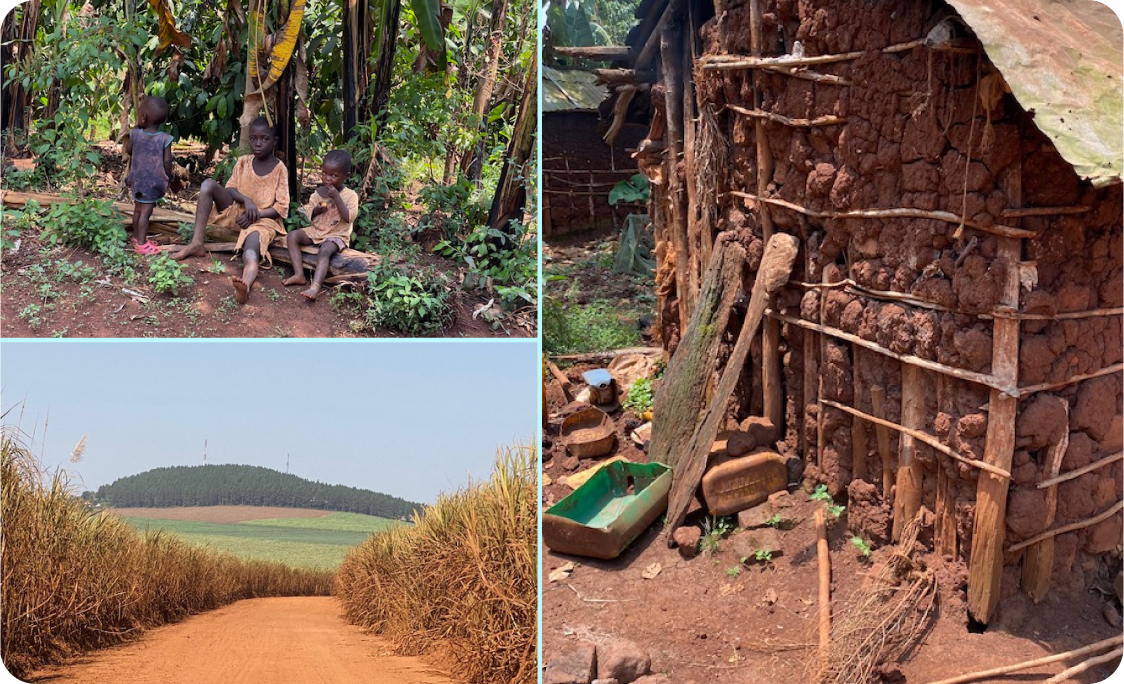
Open, endless rolling hills of lush greenery and dusty red roads run through the abundant sugarcane plantations while village children live in abject poverty.
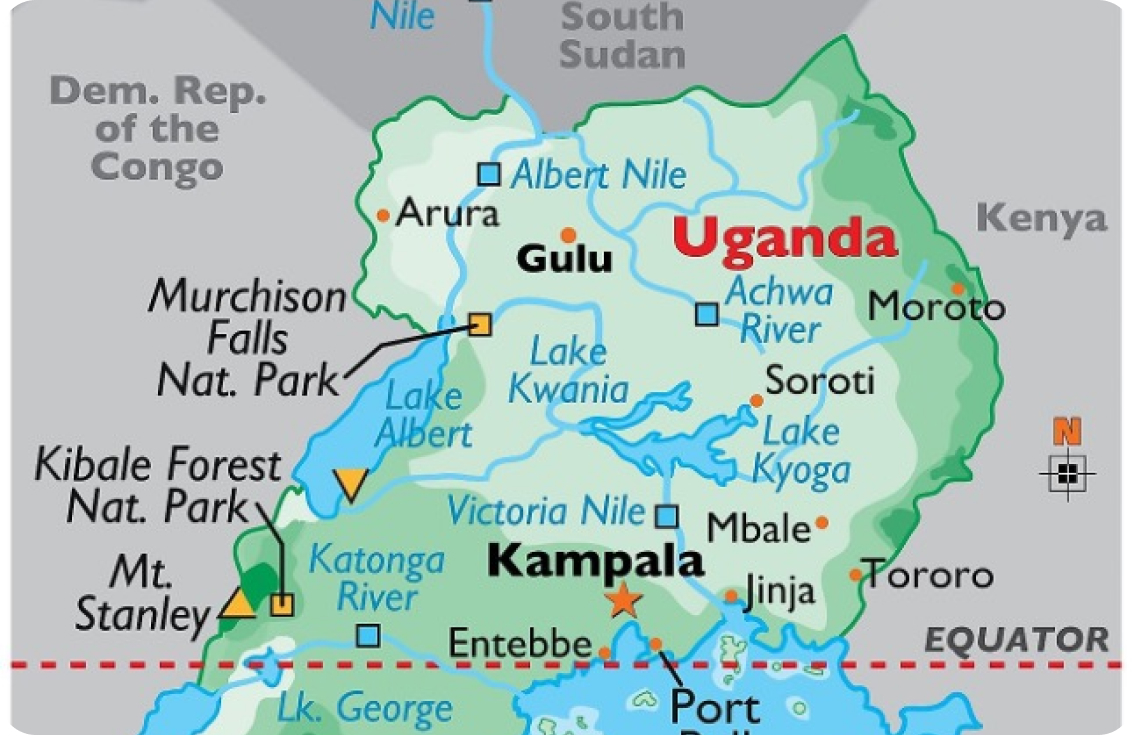
Hopeland Volunteers’ headquarters is located in Lugazi which is in Central Eastern Uganda between Jinja and Kampala.
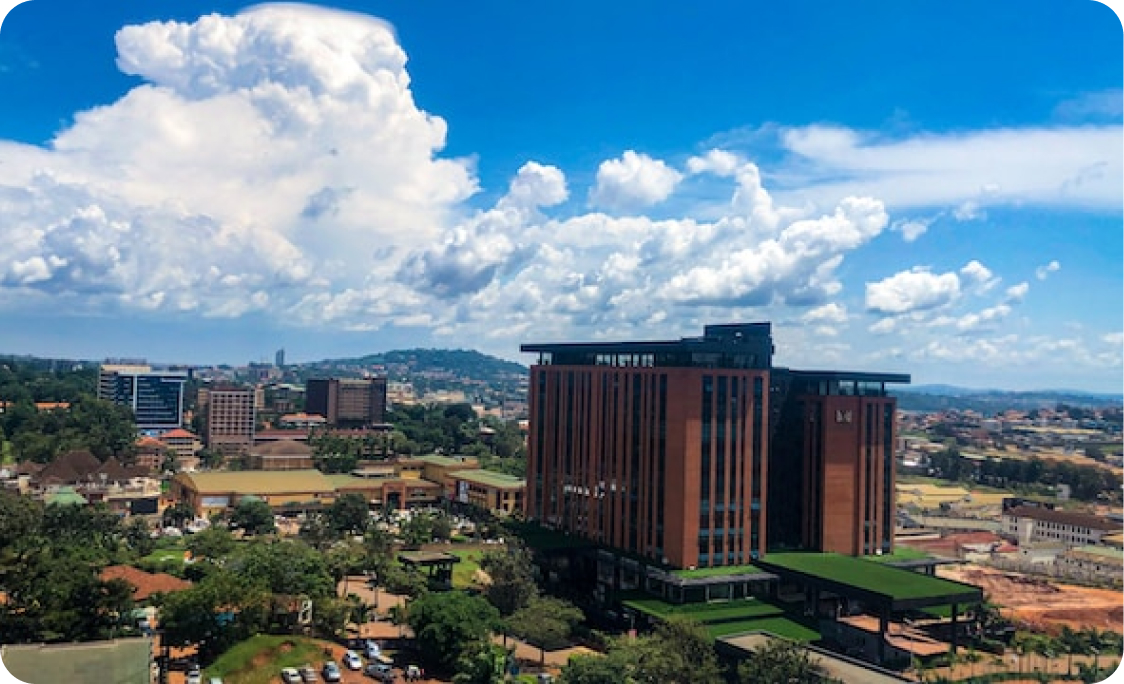
Take a one-to-three hour car ride (on mostly newly built highways) to Jinja, Kampala or Entebbe to great tourist attractions, terrific restaurants and an abundance of shopping.
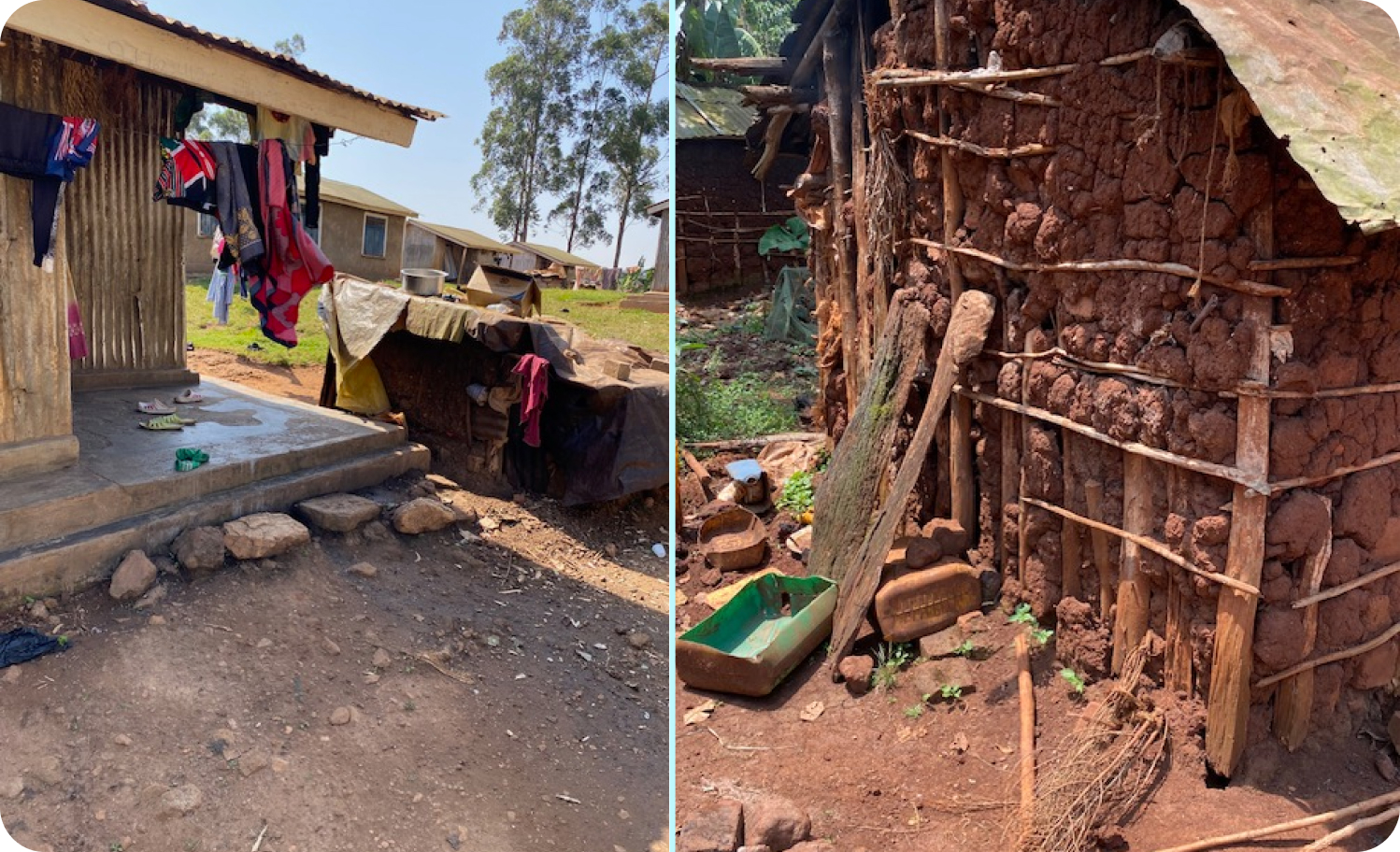
Mud and thatch huts nestled alongside concrete and tin-roof homes built for the plantation workers
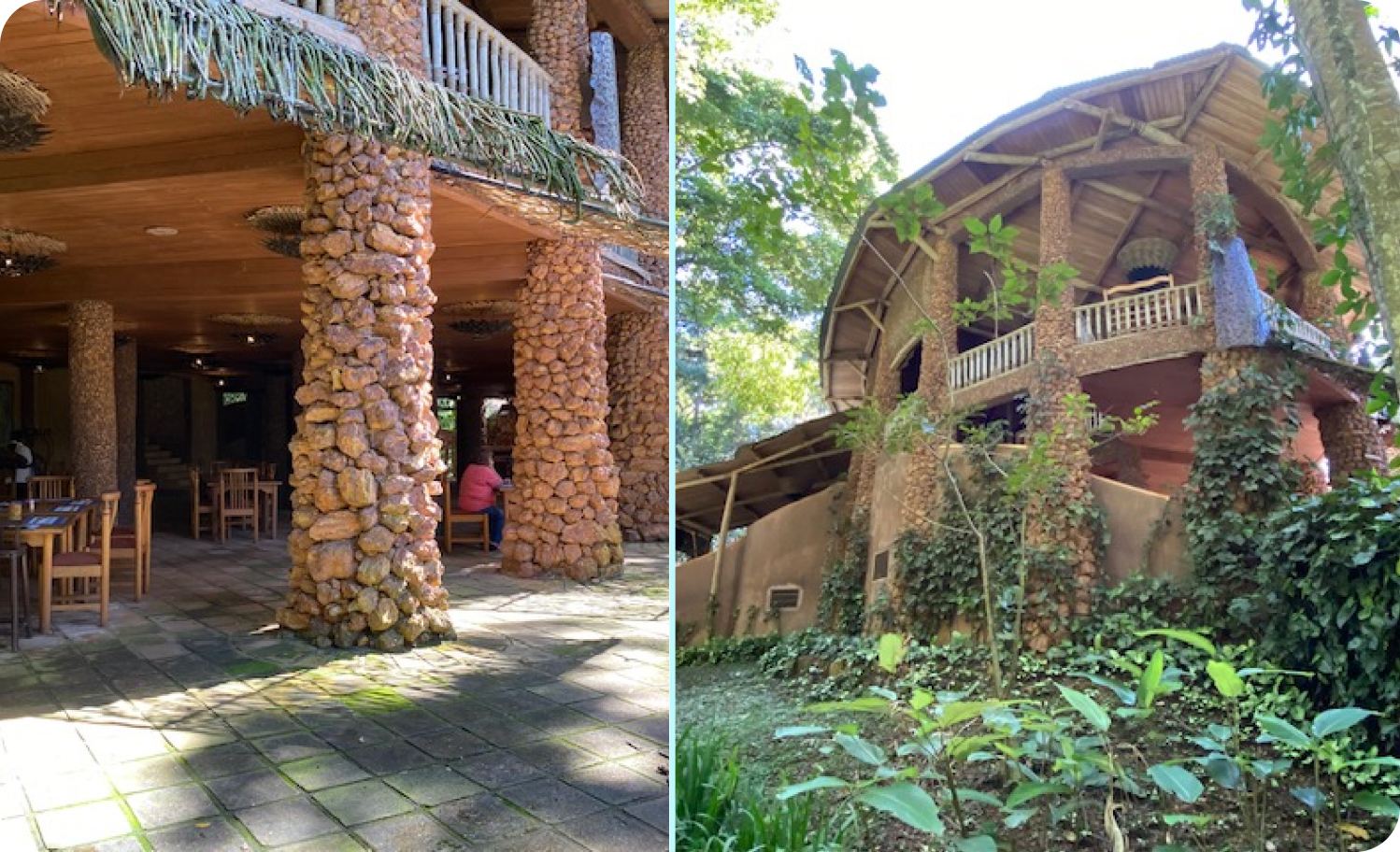
Very close to our Volunteer Center is the Rain Forest Lodge -- one of the most luxurious resorts in the area.
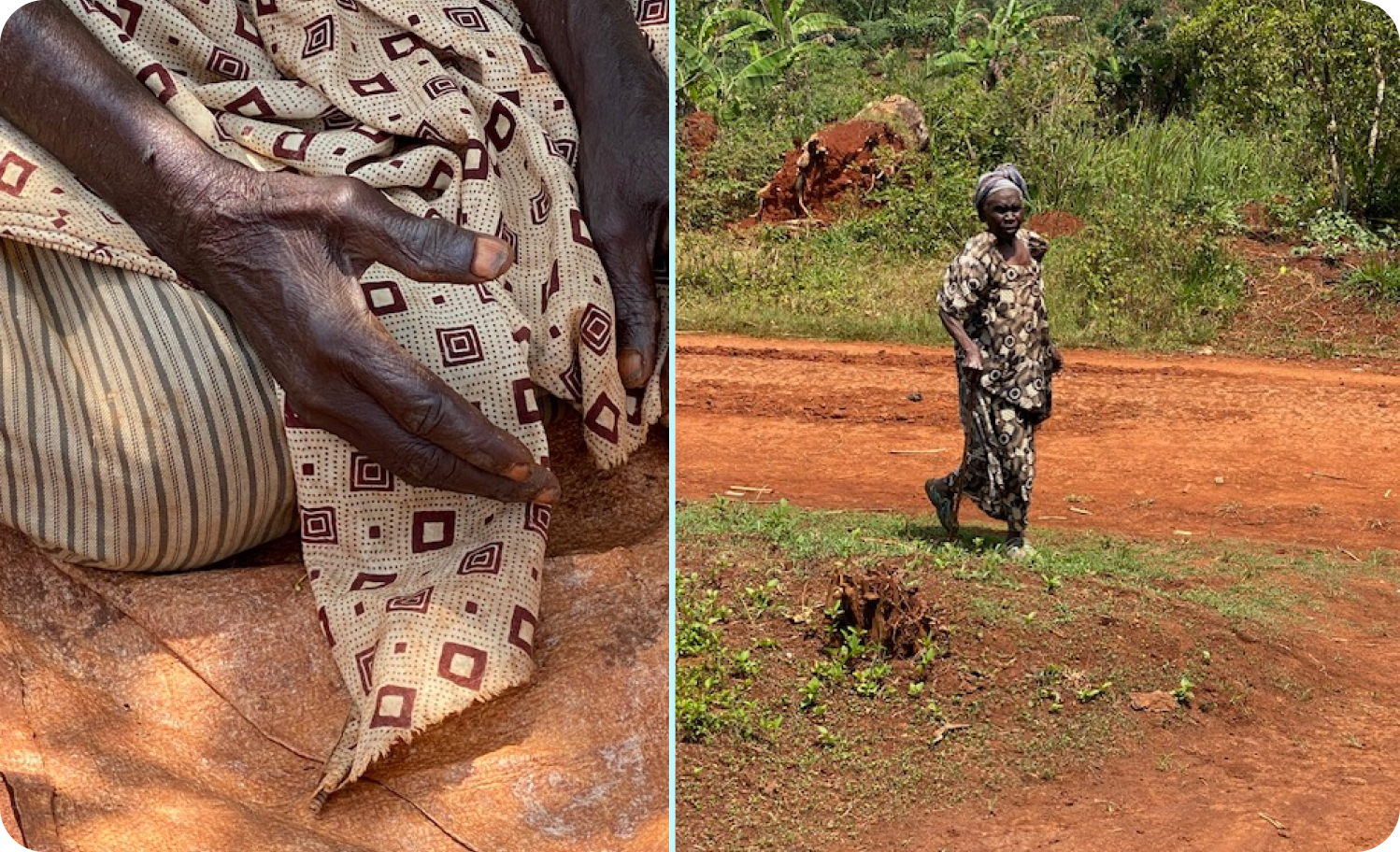
Jajjas (grandmothers) rule the family structure in the nearby villages

Teachers at Hopeland Junior School Kitoola, within walking distance of these grandmothers. dress in Western business attire in an effort to inspire village school children.
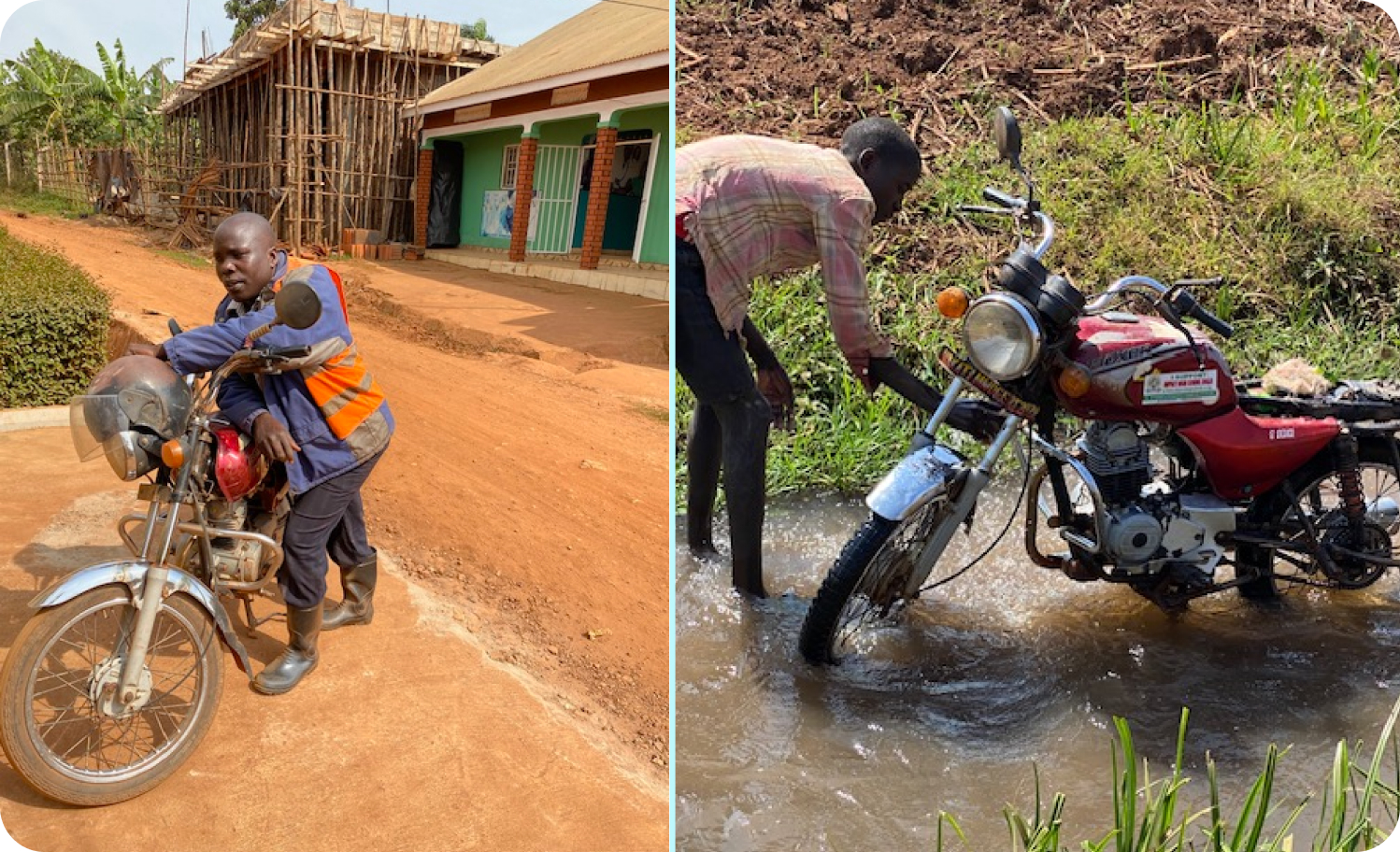
Boda-bodas – passenger motorcycles – are the primary mode of short-and even long-distance commutes. One proud owner cleans his investment in a nearby stream and entrepreneurial drivers in Kampala carry heavy loads in an attempt to make every mile count as income.

Poverty is ubiquitous in Uganda but so are the ongoing efforts of Hopeland Schools to lift these children out of impoverishment.
These pages offer you only a bare-bones overview of Uganda. We know before you decide to volunteer with us – and then, especially once you’ve made your decision to travel – that you’ll go online and do your own research. Following are some suggested websites and YouTube videos. And have no fear, once you arrive on your first day, you’ll get a thorough Orientation about the culture, the food, the people and your work…… Just know that the people of Uganda are kind, courteous, and incredibly hard-working and will truly welcome you with open arms. The children are adorable and friendly and often shy at first; the adults are insightful and diligent in their work; and the elderly are wise and funny – and often terribly medically neglected.
Your first stop can be the all-purpose Wikipedia page. It’s thorough, relatively up to date and gives you a broad overview of the history, politics, economy, natural beauty and attractions.
The Britannica site is similar to Wikipedia but is written more for the you as a tourist. An added benefit of this site is the “recent news” articles at the start of the site.And speaking of “recent news”, it’s fun to set up a “Google alert” for Uganda, if you use Gmail. You’ll get daily sports team updates, political decisions, economic articles, health challenges and opinion pieces about Uganda from around the world.
This is one of the best food guides to introduce you to the foods you’ll be eating. Not all foods shown on this site will be available to you at our Volunteer Center (See our Volunteer Pages for your daily menu), but you’ll be able to find most of these foods as you travel around the countryside or go out to a restaurant. And it will give you a working knowledge of the verbiage – matooke, chappati, posho, groundnut sauce, etc.
You are coming to a region of Uganda that knows great poverty. The kind of poverty you most probably have not been exposed to. Extreme or abject poverty is the most severe type of poverty, defined by the United Nations (UN) as "a condition characterized by severe deprivation of basic human needs, including food, safe drinking water, sanitation facilities, health, shelter, education and information. It depends not only on income but also on access to services". Statistics vary but many children die before their fifth birthday; infant and maternal mortality rates are high; the diseases responsible for the most deaths right now are HIV/AIDS, malaria, child pneumonia, neonatal infections, diabetes, high blood pressure, TB and the diseases created by medical neglect. Sugarcane plantation workers who hoe, dig, spray and harvest non-stop in the hot sun or rain from sun up to sun down make on average $6.00 per week. Sugarcane is the largest crop and thus employer in this region of Uganda, and though the employment supporting the crop sustains the economy, it does so at a meager level for the individuals. A single mother supporting four to seven children at home with no other source of income and hoping to pay school fees must feed, clothe and educate her family based on her incredible daily efforts – for which she is barely paid.
The following articles will give you a broad brush insight into Uganda’s poverty and the effects: https://www.unicef.org › uganda › topics › poverty